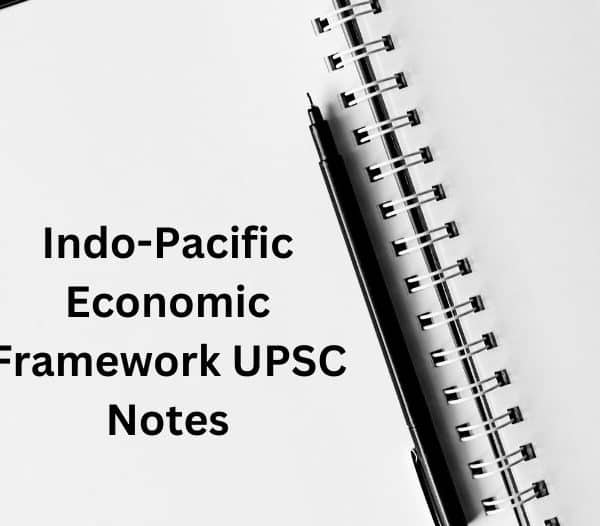Joshimath is a small town located in the Chamoli district of Uttarakhand. The town is situated at the confluence of the Alaknanda and Dhauliganga rivers and is known for its religious significance as well as being a popular tourist destination. Recently, the town was in news due to the Joshimath sinking tragedy where many lives were lost. This tragedy is of utmost importance for UPSC aspirants to understand and analyze, as it relates to various issues such as environmental degradation, climate change, and disaster management.
Also Read: What is the Delimitation Commission? UPSC Notes for GS Paper 2
The Relevance of Joshimath for UPSC Preparation
Joshimath is a significant place in terms of UPSC preparation as it provides insights into various dimensions of disaster management and environmental issues. Understanding the causes and consequences of the Joshimath sinking tragedy is crucial for aspirants appearing for the UPSC exam, as it could be a potential topic for essay writing or in the main exam.
Notes for UPSC on Joshimath Sinking
The Joshimath sinking tragedy occurred on 7th February 2021, when a glacier broke off in the Tapovan area of the Chamoli district, causing flash floods in the Dhauliganga river. The flash floods led to the destruction of several homes, bridges, and buildings, including the Rishiganga Hydroelectric Power Project. Many people lost their lives, and the rescue operation lasted for several days.
Here are some additional points to consider when taking notes for UPSC on the Joshimath sinking:
- The Joshimath sinking tragedy has brought to the forefront the impact of climate change on the Himalayan region, which has seen a significant increase in the frequency of extreme weather events, including floods, landslides, and glacial lake outburst floods (GLOFs).
- The tragedy highlights the need for more sustainable development practices in the region, as rapid urbanization, infrastructure development, and deforestation have led to ecological imbalances, making the area more susceptible to natural disasters.
- The disaster has also exposed the vulnerability of communities living in the region, who are often the first to bear the brunt of such events. The tragedy has underscored the need for disaster-resilient infrastructure, livelihood diversification, and risk-reduction measures to protect vulnerable communities.
- The tragedy has highlighted the importance of early warning systems, disaster preparedness, and effective communication channels to mitigate the impact of such events. It has also emphasized the role of the armed forces, disaster management agencies, and local communities in responding to emergencies.
- The disaster has led to calls for a review of existing policies and regulations relating to hydropower projects and other infrastructure development projects in the region. There is a need to balance economic development with ecological sustainability and social welfare considerations.
Also Read: History of India and Indian National Movement: Learn the Most Important UPSC Notes!
By taking comprehensive notes on these points, UPSC aspirants can gain a deeper understanding of the Joshimath sinking tragedy and its wider implications for environmental sustainability, disaster management, and community resilience.
Important Facts to Remember on Joshimath for UPSC
- The Joshimath sinking tragedy was caused due to the glacier breaking off in the Tapovan area, leading to flash floods in the Dhauliganga river.
- The Rishiganga Hydroelectric Power Project was one of the worst-affected areas in the tragedy, leading to a significant loss of life and property.
- The disaster highlights the lack of preparedness and inadequate measures for disaster management in the region.
- The incident raises questions about the need for more sustainable development practices in the area.
- The Joshimath sinking tragedy is one of the worst disasters to have occurred in Uttarakhand since the 2013 Kedarnath disaster, which claimed thousands of lives.
- The disaster has raised concerns about the impact of climate change on the Himalayan region, which is increasingly becoming vulnerable to such events.
- The tragedy has also exposed the dangers of unregulated development in the region, particularly in the construction of hydropower projects, which have been mushrooming in the area.
- The incident has highlighted the importance of early warning systems and disaster preparedness, as many lives could have been saved if there were adequate measures in place.
- The disaster has brought to the forefront the role of the armed forces and disaster management agencies in responding to such emergencies and the need for better coordination between various agencies.
- The tragedy has led to calls for a review of environmental regulations and laws relating to hydropower projects in the region, which need to be strengthened to prevent such disasters in the future.
By keeping these points in mind, UPSC aspirants can gain a better understanding of the Joshimath sinking tragedy and its implications for the region and the country as a whole.
Role of UPSC Online Coaching on Keeping You Updated
UPSC online coaching can play a crucial role in keeping aspirants updated on current affairs and topics like the Joshimath sinking tragedy. Online coaching platforms such as Unacademy, BYJU’S, and others provide daily current affairs updates, which can help aspirants stay updated with the latest news and events. They also offer video lectures, quizzes, and mock tests that can help aspirants prepare better for the UPSC exam.
Also Read: Uniform Civil Code in India: Suggestions, Challenges and Essay for UPSC Notes
Conclusion
In conclusion, the Joshimath sinking tragedy is a significant event that highlights the need for sustainable development practices and effective disaster management measures in the country. Aspirants appearing for the UPSC exam should be aware of such current affairs and should analyze them from different angles to score well in the exam. UPSC online coaching can help aspirants stay updated and provide them with the necessary guidance to ace the exam.







